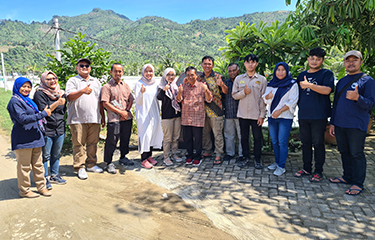SeafoodSource is closely following the sustainable seafood movement by compiling a regular round-up of sector updates about sustainability initiatives and certifications.
-The Aquaculture Stewardship Council (ASC) announced Indonesia-based PT. Koyo Segoro Endah shrimp farm has become the first farm to achieve ASC certification through the Improver Programme, which supports farms not yet ready or eligible for ASC certification in improving their practices.
“Our ASC certification means that we now have a place in the global marketplace and are meeting the demand for responsibly farmed shrimp, a milestone we couldn’t have reached without ASC’s Improver Programme,” PT. Koyo Segoro Endah Manager Rudyanto said in a release. “The support we received from our partners throughout this process was invaluable. It gave us the knowledge and confidence we needed to move forward to ASC certification.”
ASC launched a credible framework for Aquaculture Improvement Projects (AIPs) at the Global Shrimp Forum on 7 September, in Utrecht, the Netherlands (pictured). The AIP framework falls under the ASC Improver Programme, which was announced in 2018. The first pilots were conducted in Indonesia with PT BMI, Sekar Bumi and JALA, and subsequent pilots have been initiated with Lenk Seafood Services and Luna Seafoods in Bangladesh.
- FCF Co. partnered with the Environment and Animal Society of Taiwan (EAST) and Alumni Service Center and Social Engagement, National Sun Yat-sen University (NSYU) to host the 2023 International Symposium on Fishery Sustainability earlier this month.
The one-day event took place on 17 November in Kaohsiung, Taiwan. Topics focused on technologies for sustainable sourcing, biodiversity preservation, and seafood traceability.
"Sustainability is a commitment that requires collective action. This symposium is a reflection of our dedication to catalyze positive change in the seafood industry,” FCF President Max Chou said in a release.
- Scotland's Sustainable Aquaculture Innovation Center announced a study has found a chemical-free approach to treating waste from aquaculture that could result in greater operational efficiency and the development of co-products such as marine worms and seaweed.
The study was led by a team of researchers at the Scottish Association for Marine Science (SAMS), with funding from SAIC.
“Aquaculture waste is not typically considered as valuable as co-products from other sectors, but there are a range of opportunities to be explored that could change that attitude. By taking a circular approach, we can use the co-products to aid the growth of other organisms that will, in turn, benefit the sector as a sustainable feed ingredient," SAMS Researcher Georgina Robinson said in a release. "This is the first time the water treatment system has been used for freshwater waste and the results of the project could show huge potential for it to be adopted more widely."
The study studied the use and impact of water treatment equipment at Scottish Sea Farms’ Barcaldine Hatchery near Oban, Scotland.
“Re-purposing fish waste into valuable byproducts is a core part of our day-to-day operations at Barcaldine Hatchery. This new collaboration has the potential to build on this by diversifying and growing the range of by-products that can be delivered,” Scottish Sea Farms Project Leader Ewen Leslie said.
Photo courtesy of ASC







